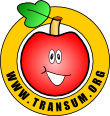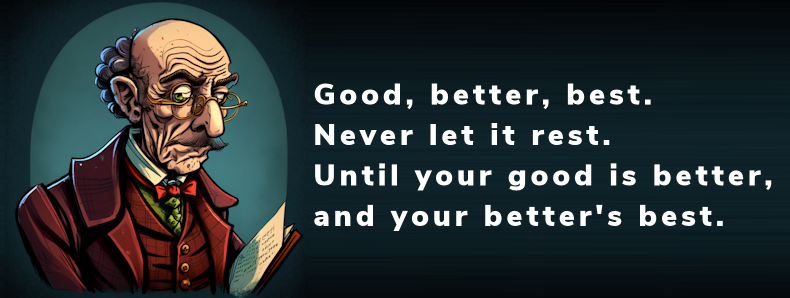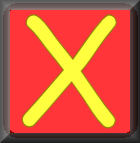
 |
|
This is level 1: find two values given their ratio and either their sum or difference. You can earn a trophy if you get at least 9 questions correct and you do this activity online.

InstructionsTry your best to answer the questions above. Type your answers into the boxes provided leaving no spaces. As you work through the exercise regularly click the "check" button. If you have any wrong answers, do your best to do corrections but if there is anything you don't understand, please ask your teacher for help. When you have got all of the questions correct you may want to print out this page and paste it into your exercise book. If you keep your work in an ePortfolio you could take a screen shot of your answers and paste that into your Maths file. |
||
|
|
||
|
|

|
More Activities: |
|
Mathematicians are not the people who find Maths easy; they are the people who enjoy how mystifying, puzzling and hard it is. Are you a mathematician? Comment recorded on the 3 October 'Starter of the Day' page by S Mirza, Park High School, Colne: "Very good starters, help pupils settle very well in maths classroom." Comment recorded on the 9 May 'Starter of the Day' page by Liz, Kuwait: "I would like to thank you for the excellent resources which I used every day. My students would often turn up early to tackle the starter of the day as there were stamps for the first 5 finishers. We also had a lot of fun with the fun maths. All in all your resources provoked discussion and the students had a lot of fun." |
Each month a newsletter is published containing details of the new additions to the Transum website and a new puzzle of the month. The newsletter is then duplicated as a podcast which is available on the major delivery networks. You can listen to the podcast while you are commuting, exercising or relaxing. Transum breaking news is available on Twitter @Transum and if that's not enough there is also a Transum Facebook page. |
|
AnswersThere are answers to this exercise but they are available in this space to teachers, tutors and parents who have logged in to their Transum subscription on this computer. A Transum subscription unlocks the answers to the online exercises, quizzes and puzzles. It also provides the teacher with access to quality external links on each of the Transum Topic pages and the facility to add to the collection themselves. Subscribers can manage class lists, lesson plans and assessment data in the Class Admin application and have access to reports of the Transum Trophies earned by class members. If you would like to enjoy ad-free access to the thousands of Transum resources, receive our monthly newsletter, unlock the printable worksheets and see our Maths Lesson Finishers then sign up for a subscription now: Subscribe |
||
Go MathsLearning and understanding Mathematics, at every level, requires learner engagement. Mathematics is not a spectator sport. Sometimes traditional teaching fails to actively involve students. One way to address the problem is through the use of interactive activities and this web site provides many of those. The Go Maths page is an alphabetical list of free activities designed for students in Secondary/High school. Maths MapAre you looking for something specific? An exercise to supplement the topic you are studying at school at the moment perhaps. Navigate using our Maths Map to find exercises, puzzles and Maths lesson starters grouped by topic. | ||
Teachers | ||
|
If you found this activity useful don't forget to record it in your scheme of work or learning management system. The short URL, ready to be copied and pasted, is as follows: |
Alternatively, if you use Google Classroom, all you have to do is click on the green icon below in order to add this activity to one of your classes. |
It may be worth remembering that if Transum.org should go offline for whatever reason, there is a mirror site at Transum.info that contains most of the resources that are available here on Transum.org. When planning to use technology in your lesson always have a plan B! |
|
Do you have any comments? It is always useful to receive feedback and helps make this free resource even more useful for those learning Mathematics anywhere in the world. Click here to enter your comments. |
||
© Transum Mathematics 1997-2026
Scan the QR code below to visit the online version of this activity.
https://www.Transum.org/go/?Num=366
Close

Level 1 - Find two values given their ratio and either their sum or difference
Level 2 - Find one of three numbers given the connection between them
Level 3 - Find numbers whose sum and difference are given
Level 4 - Find numbers when given information about the sum or difference of their multiples
Level 5 - More questions similar to those in previous levels
Level 6 - Yet more questions similar to those in previous levels
Level 7 - The algebra involved in this level includes fractions
Answers to this exercise are available lower down this page when you are logged in to your Transum account. If you don’t yet have a Transum subscription one can be very quickly set up if you are a teacher, tutor or parent.
See the National Curriculum page for links to related online activities and resources.
Back in 1895 Mr Boyden wrote 'Algebra is so much like arithmetic that all that you know about addition, subtraction, multiplication, and division, the signs that you have been using and the ways of working out problems, will be very useful to you in this study. There are two things the introduction of which really makes all the difference between arithmetic and algebra. One of these is the use of letters to represent numbers, and you will see in the following exercises that this change makes the solution of problems much easier'.
The sum of two numbers is 60, and the larger number is four times the smaller. What are the numbers?
Let \(x\) represent the smaller number;
then \(4x\) represents the larger number,
and \(4x+x=60\),
or \(5x=60\);
therefore \(x=12\),
and \(4x=48\).
The numbers are 12 and 48.
Second Example. If the difference between two numbers is 48, and one number is five times the other, what are the numbers?
Let \(x\) represent the smaller number;
then \(5x\) represents the larger number,
and \(5x-x=48\),
or \(4x=48\);
therefore \(x=12\),
and \(5x=60\).
The numbers are 12 and 60.
Don't wait until you have finished the exercise before you click on the 'Check' button. Click it often as you work through the questions to see if you are answering them correctly. You can double-click the 'Check' button to make it float at the bottom of your screen.
Answers to this exercise are available lower down this page when you are logged in to your Transum account. If you don’t yet have a Transum subscription one can be very quickly set up if you are a teacher, tutor or parent.
Close

Transum,
Sunday, January 26, 2014
"These questions have been adapted from 'A First Book in Algebra' by Wallace Boyden. They all are designed to encourage an algebraic solution by setting up an equation (or alternatively simultaneous equations) and solving it. Some of the questions could be classified under the topic of ratio.
In his introduction Wallace Boyden states 'Algebra is so much like arithmetic that all that you know about addition, subtraction, multiplication, and division, the signs that you have been using and the ways of working out problems, will be very useful to you in this study. There are two things the introduction of which really makes all the difference between arithmetic and algebra. One of these is the use of letters to represent numbers, and you will see in the following exercises that this change makes the solution of problems much easier.'."
I'm Not A Humanist But..., Planet Earth
Saturday, May 24, 2014
"On level 4 of the 'algebra in action' section, question 11 says:
"Divide the number 137 into three parts, such that the second is 3 more than the first, and the third five times the second. What is the third part?"
The answer is 100, but it was marked as being wrong, so I tried again, but with 20 (the second number) and 17 (the first number) and it marked 17 as being correct.
Just thought you should know about this mistake so that you can correct it.
[Transum: Thank you so much for taking the time to highlight this error. You were indeed right and the error has now been corrected. Thank you so much.]"
Nick Staples, Waipahu Intermediate
Wednesday, August 18, 2021
"Is there a way these algebra in action activities can be made into printable worksheets please.
[Transum: Thanks for your feedback Nick. Most of the Transum online exercises can be printed directly from your browser. The input boxes transform into dotted lines for pupils to write their answers on and if the page is being printed by a Transum subscriber, the answers appear at the bottom of the worksheet.]"